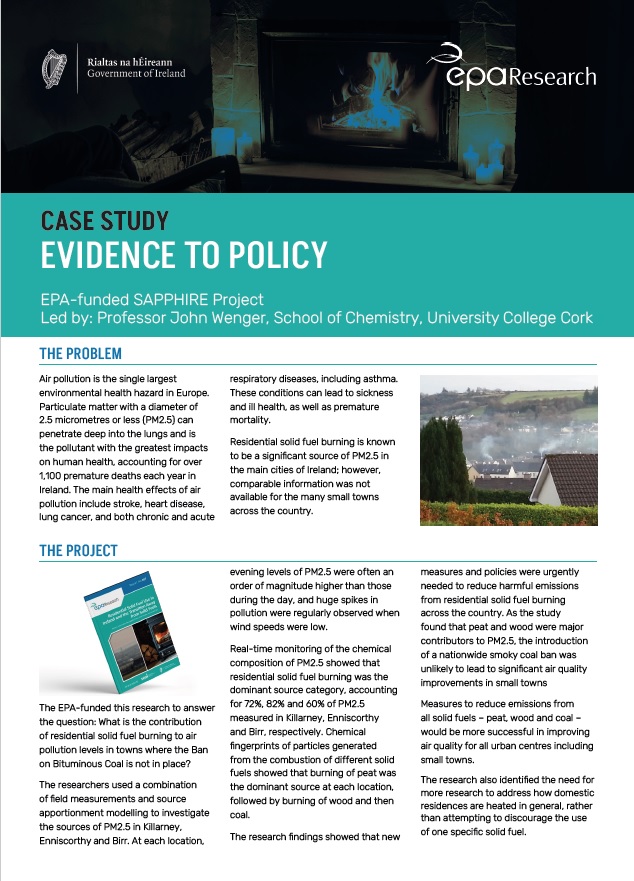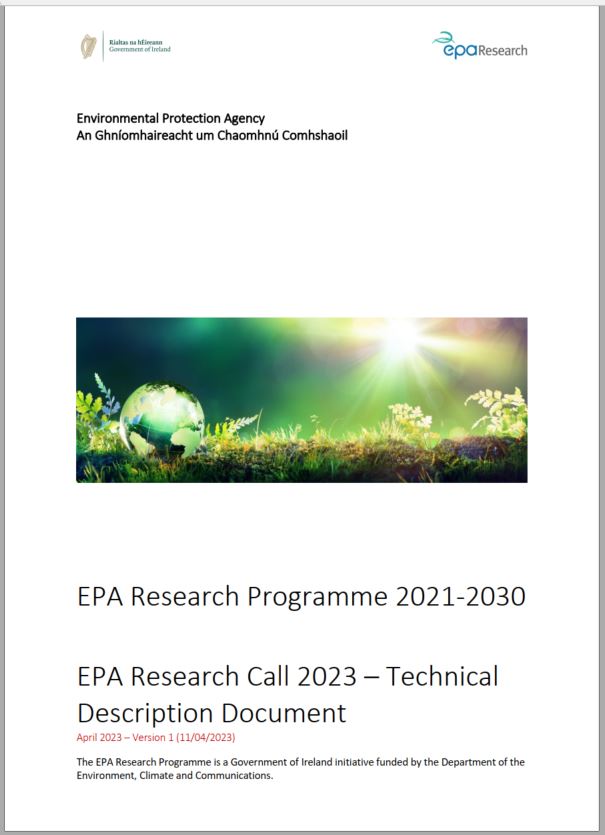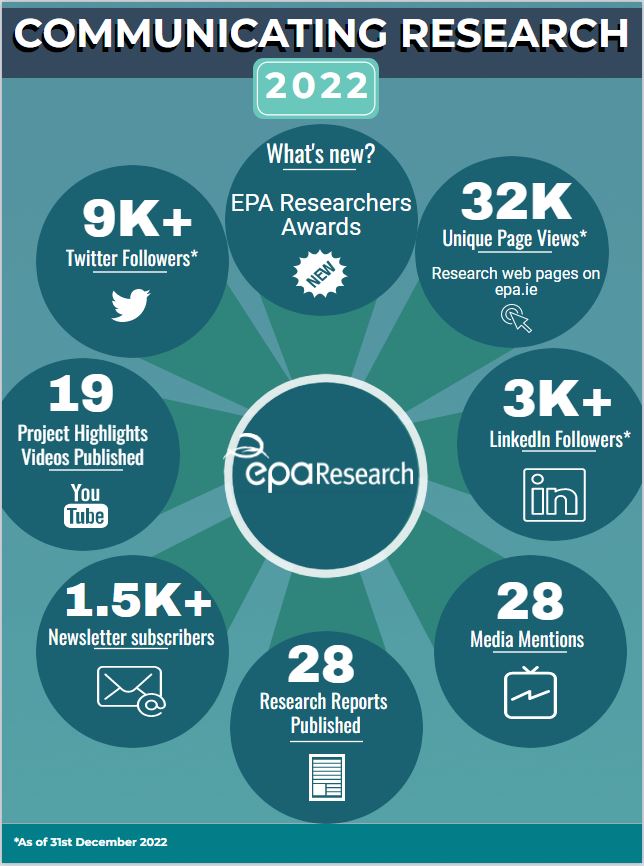Latest Research Publications
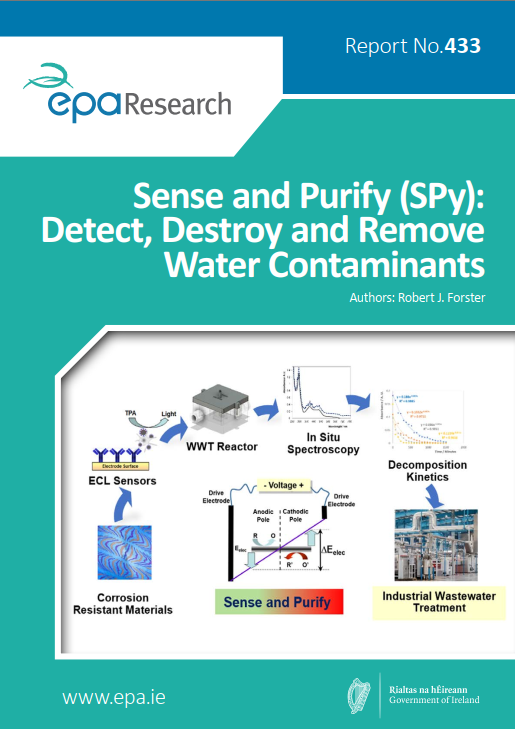
Research 433: Sense and Purify (SPy): Detect, Destroy and Remove Water Contaminants
Authors: Robert J. Forster, June 2023
Year: 2023
Many wastewater streams, such as those from the pharmaceutical and food industries or from municipal wastewater, for example, contain pollutants. The SPy project developed the eco-innovative ‘Sense and Purify’ (SPy) technology, which has significant advantages over traditional treatment processes, including low operations costs, significantly lower energy consumption, higher conversion efficiency, better effluent water quality and lower waste production.
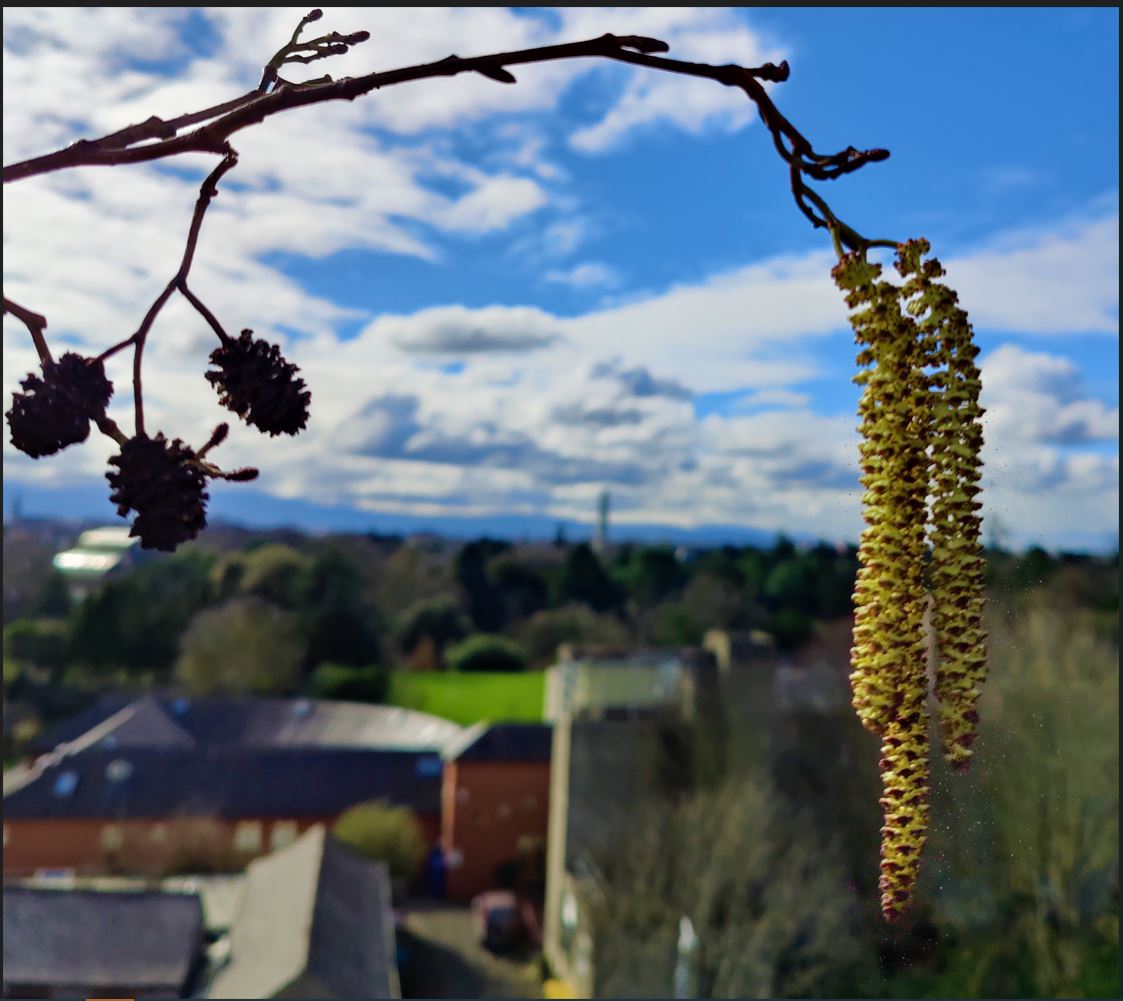
EPA Researchers Awards 2023 Photograph Winner
Pollen over Dublin City: Urban Exposure , May 2023
Year: 2023
Ireland has one of the highest incidents rates of asthma in the world with 80% of Irish asthmatics also possessing pollen allergies. Therefore, airborne pollen represents and immediate respiratory risk to the Irish public, especially for those in urban areas. The Irish monitoring network has only very recently commenced tracking the airborne pollen. Previously only broad inaccurate forecasts made in the UK were available. This entry represents the hard work that has gone into establishing a pollen monitoring network. The image was taken atop the Met Éireann facility, showing a pollen catkin against the city back-drop, with O’Connell tower seen piercing the sky. The image was taken on the day the first pollen sampler was installed there. Since then, we have continued to monitor pollen in Dublin and at several other sites with the hopes of continuing and improving the network and sharing results with those that need it.
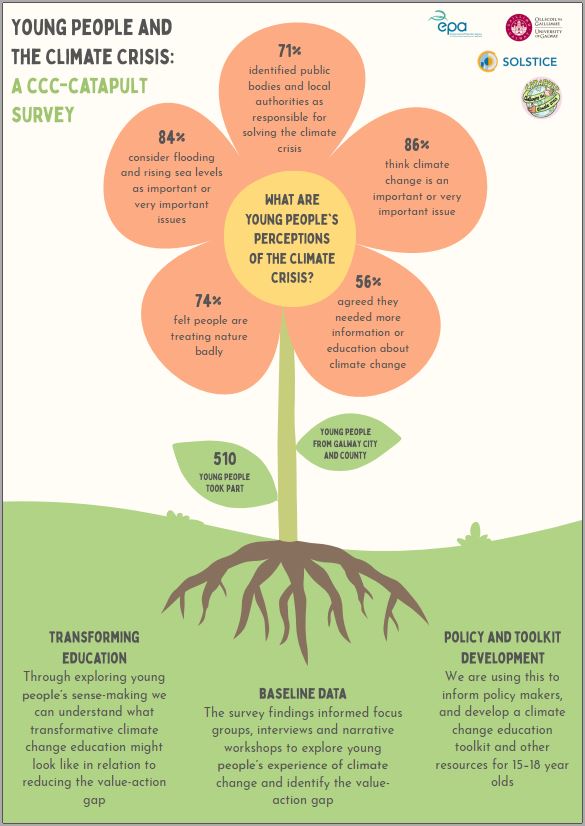
EPA Researchers Awards 2023 Infographic Winner
CATAPULT Survey Infographics, May 2023
Year: 2023
Details of a unique survey questioning 15 – 18 year olds in Galway city and Galway county schools on their experiences of climate change and the climate crisis. Survey undertaken not only in Ireland but in three other European countries, UK, Finland and Italy also with nearly 2000 young people aged between 15 – 18 years of age participating. One of the outcomes of this online survey was generation of baseline data set for Focus Groups, Interviews and Narrative Workshops. Another outcome of the survey to inform stakeholders and policy makers, and facilitate in the production of a Climate Change Education Toolkit and resources for both formal and informal educational settings.
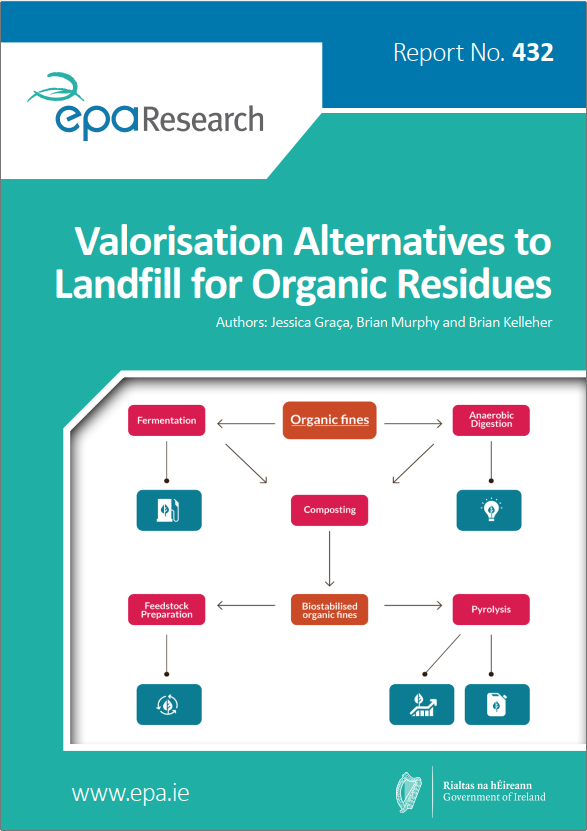
Research 432: Valorisation Alternatives to Landfill for Organic Residues
Authors: Jessica Graça, Brian Murphy and Brian Kelleher, May 2023
Year: 2023
The EPA’s latest data (November 2022) show that municipal waste generation increased by over 440,000 tonnes in the last 5 years, and now amounts to 3.2 million tonnes. The VALOR study looked at how the resource value of the mechanically separated organic fraction of municipal solid waste (MS-OFMSW) can be maximised. The study also characterised the organic fractions of municipal solid waste (MSW).
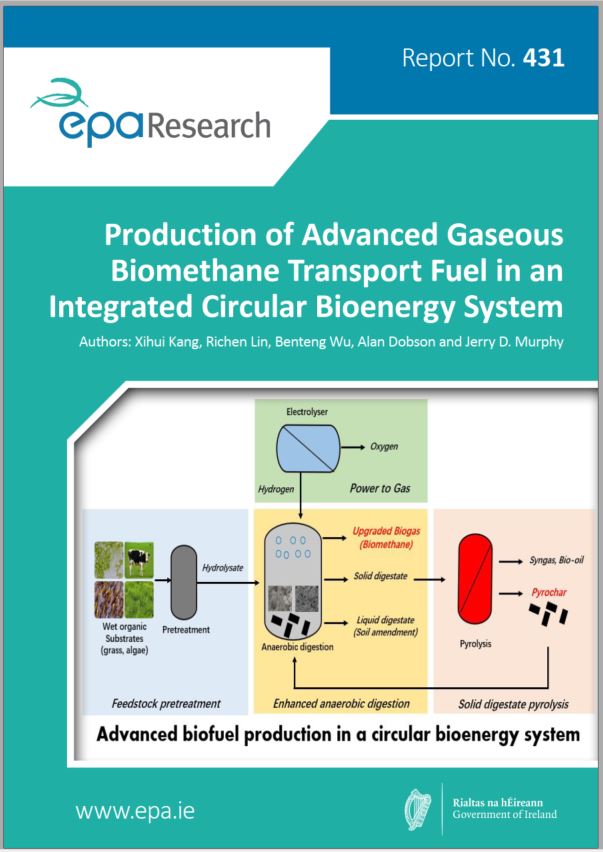
Research 431: Production of Advanced Gaseous Biomethane Transport Fuel in an Integrated Circular Bioenergy System
Authors: Xihui Kang, Richen Lin, Benteng Wu, Alan Dobson and Jerry D. Murphy, April 2023
Year: 2023
Transport is by far the largest source of energy-related CO2 emissions in Ireland. This highlights the need for a rapid transition from a linear fossil fuel-based economy to a bio-based economy that treats waste as a commodity, reduces GHG emissions, sequesters carbon and produces biofuels, biofertilisers, and bioproducts. The aim of the Advanced Gaseous Biomethane project was to develop an integrated system that produces biomethane using biomass to fuel the transport sector cleanly and support Ireland in achieving key emissions targets.
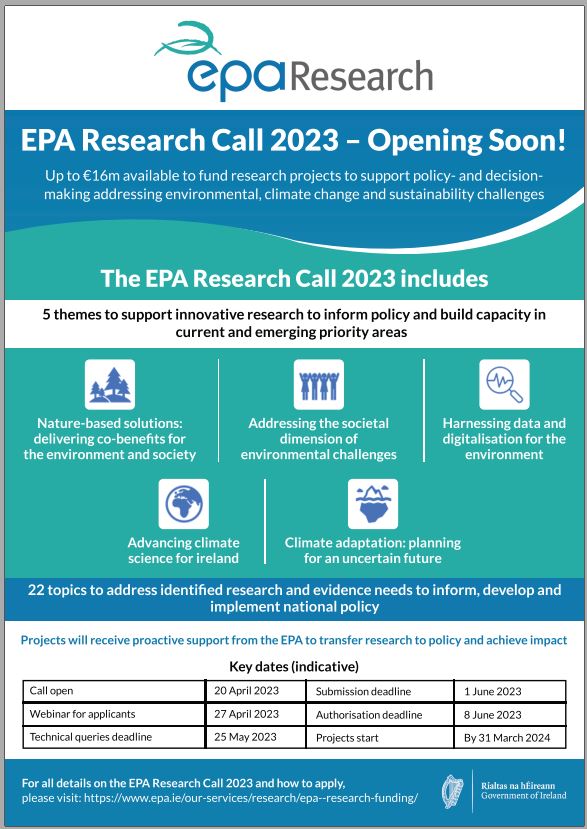
EPA Research Call 2023 Opening Soon
Year: 2023
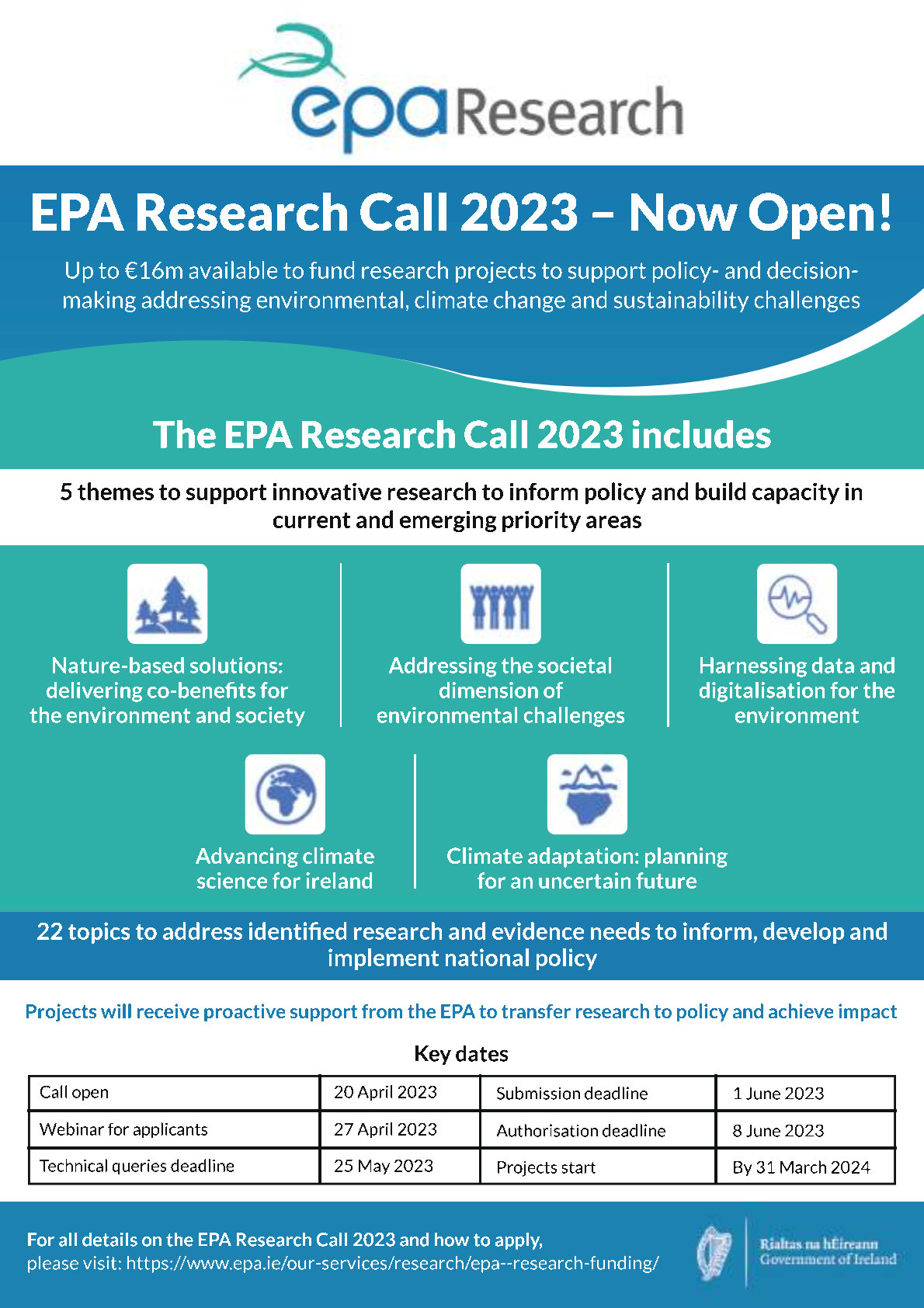
EPA Research Call 2023 Now Open
Year: 2023
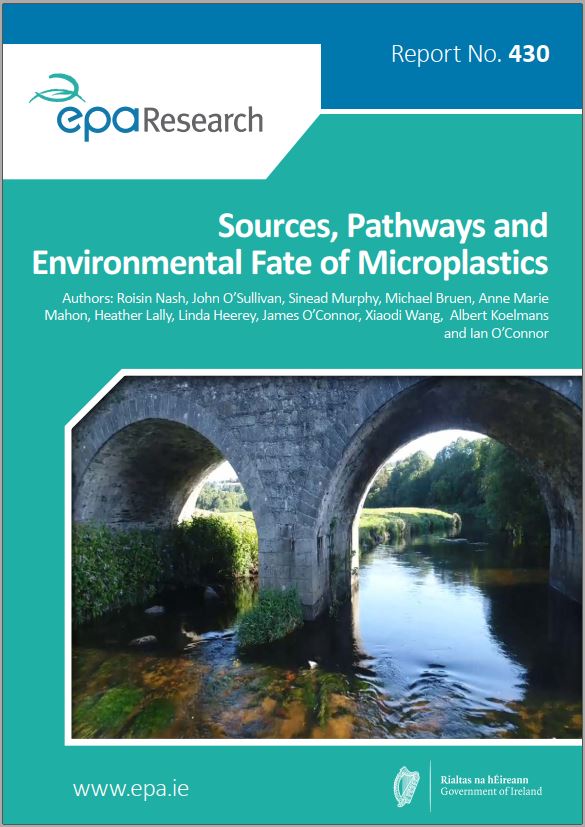
Research 430: Sources, Pathways and Environmental Fate of Microplastics
Authors: Roisin Nash, John O’Sullivan, Sinead Murphy, Michael Bruen, Anne Marie Mahon, Heather Lally, Linda Heerey, James O’Connor, Xiaodi Wang, Albert Koelmans and Ian O’Connor, March 2023
Year: 2023
As plastic production continues to increase, we are seeing significant quantities of microplastics (MPs), a contaminant of emerging concern, being recorded worldwide. This research project has identified key challenges and recommendations that target MP pollution, highlighting immediate measures that could manage MP debris at known sources. This will inform the development and implementation of policies such as the Water Framework Directive.
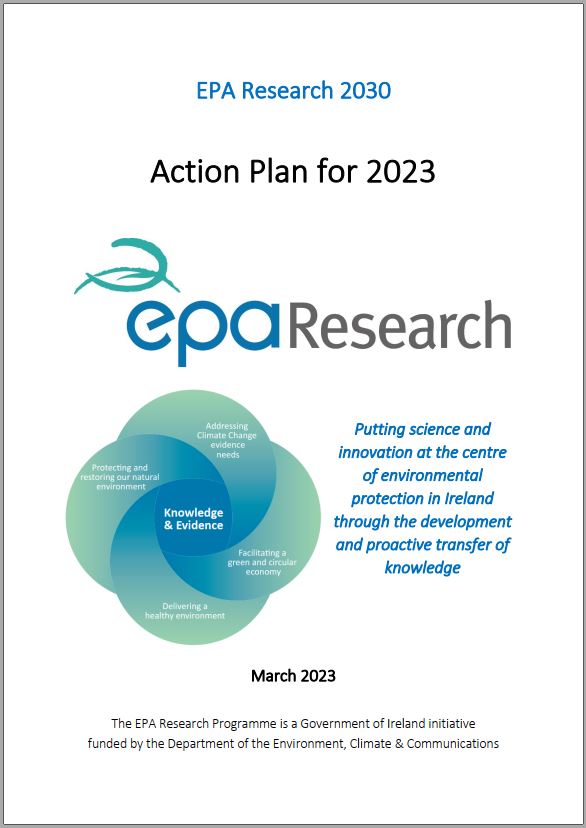
2023 EPA Research 2030 Action Plan
Authors: EPA, March 2023
Year: 2023
This Action Plan 2023 provides a guide for the planned activities of the EPA Research Programme in 2023.
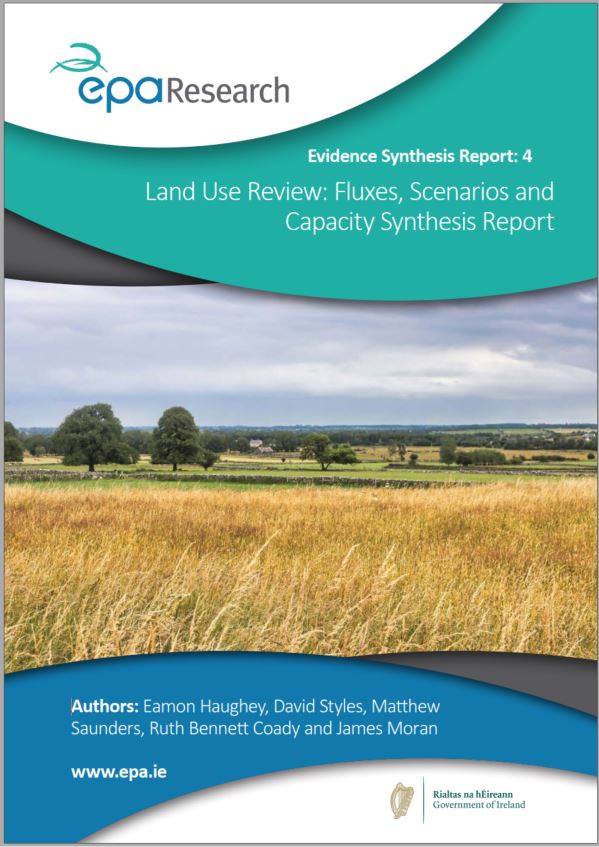
Evidence Synthesis Report 4: Land Use Review: Fluxes, Scenarios and Capacity Synthesis Report
Authors: Eamon Haughey, David Styles, Matthew Saunders, Ruth Bennett Coady and James Moran, March 2023
Year: 2023
Land use in Ireland is dominated by grasslands, with significant areas of forestry and wetland, which are not distributed evenly across the country. Changes to Irelands climate have already been observed and are projected to increase over the coming decades, impacting the land system. AFOLU in Ireland is a substantial GHG source and achieving net-zero GHG emissions targets for the sector by 2050 will be very challenging. Measures considered in this report include afforestation, peatland restoration and optimised livestock production. Land based climate mitigation measures may result in trade-offs for biodiversity and water quality, the avoidance of which require an integrated approach to land management.
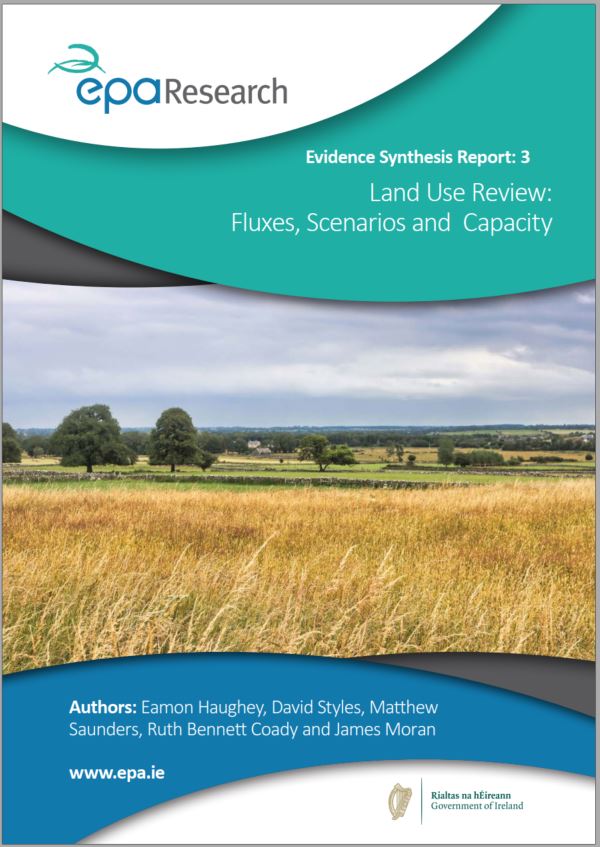
Evidence Synthesis Report 3: Land Use Review: Fluxes, Scenarios and Capacity
Authors: Eamon Haughey, David Styles, Matthew Saunders, Ruth Bennett Coady and James Moran, March 2023
Year: 2023
Land use in Ireland is dominated by grasslands, with significant areas of forestry and wetland, which are not distributed evenly across the country. Changes to Irelands climate have already been observed and are projected to increase over the coming decades, impacting the land system. AFOLU in Ireland is a substantial GHG source and achieving net-zero GHG emissions targets for the sector by 2050 will be very challenging. Measures considered in this report include afforestation, peatland restoration and optimised livestock production. Land based climate mitigation measures may result in trade-offs for biodiversity and water quality, the avoidance of which require an integrated approach to land management.
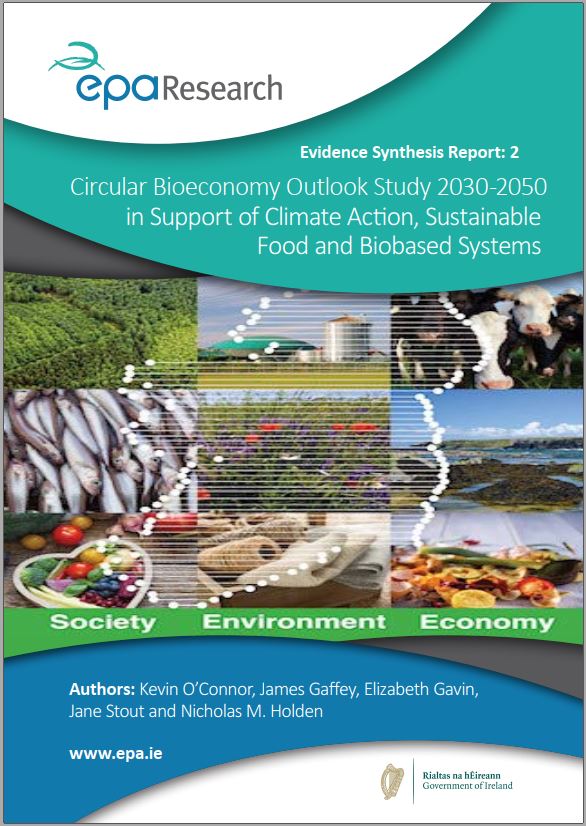
Evidence Synthesis Report 2: Circular Bioeconomy Outlook Study 2030–2050 in Support of Climate Action, Sustainable Food and Biobased Systems
Authors: Kevin O’Connor, James Gaffey, Elizabeth Gavin, Jane Stout and Nicholas M. Holden, February 2023
Year: 2023
This report provides an outlook for Ireland’s circular bioeconomy for the period 2030–2050, highlighting the potential to create economic, environmental and social opportunities for new biobased innovations.
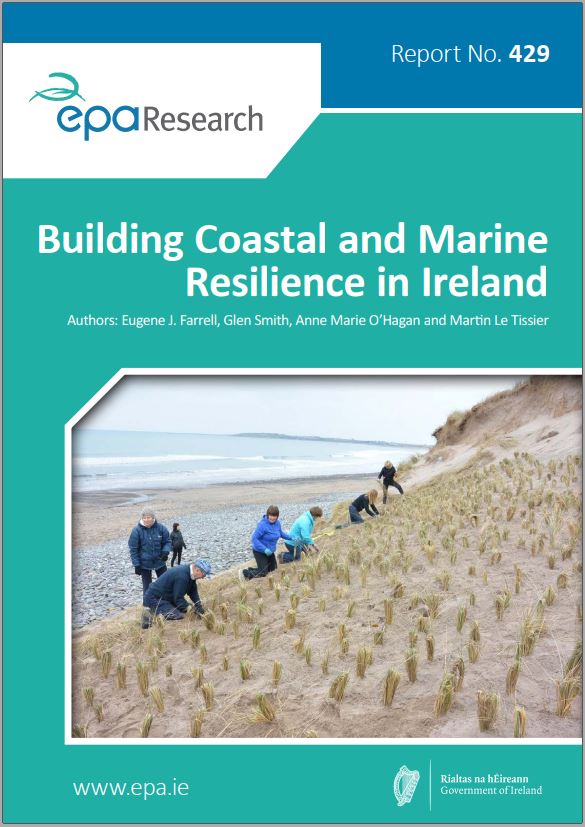
Research 429: Building Coastal and Marine Resilience in Ireland
Authors: Eugene J. Farrell, Glen Smith, Anne Marie O’Hagan and Martin Le Tissier, February 2023
Year: 2023
The identification and increased awareness of climate change risks to Ireland’s coastal communities highlights the importance of building national resilience across socio-ecological and economic systems. This research investigated barriers to the environmental and socio-economic resilience of two coastal communities: Maharees, County Kerry, and Youghal, County Cork.
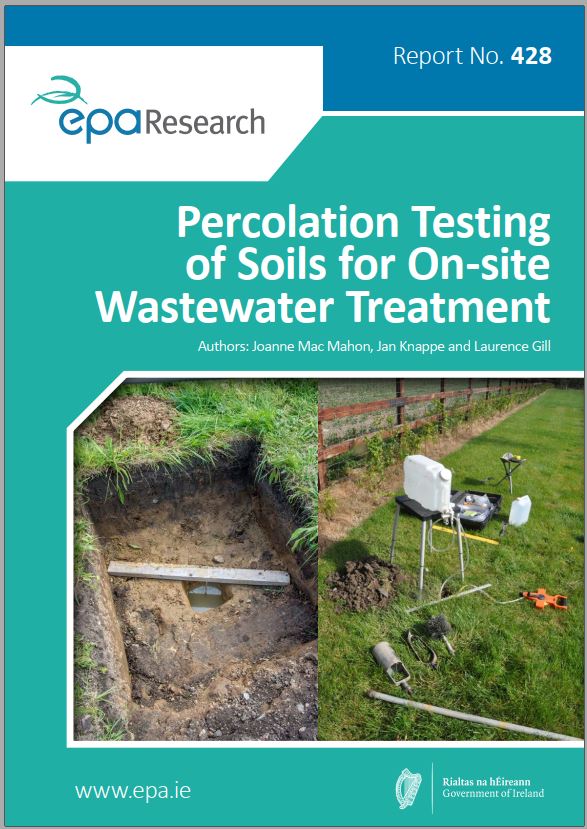
Research 428: Percolation Testing of Soils for On-site Wastewater Treatment
Authors: Joanne Mac Mahon, Jan Knappe and Laurence Gill, January 2023
Year: 2023
Estimation of soil permeability is a critical aspect of on-site wastewater treatment system design. The findings of this research identify a need to revise the currently available options in the Irish Code of Practice for estimating soil permeability for on-site wastewater system design. In this research, a correlation was developed between field saturated hydraulic conductivity (Kfs) and percolation time (T-values) across a full range of Irish soil texture data.
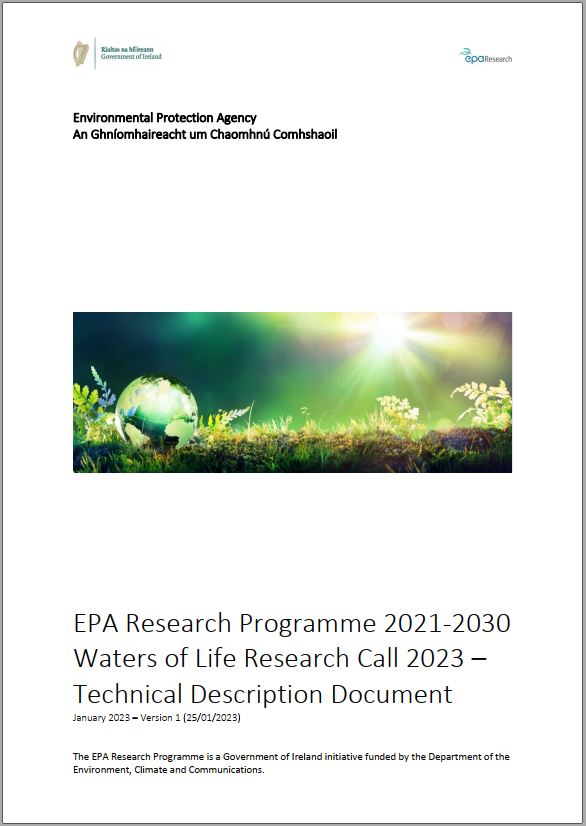
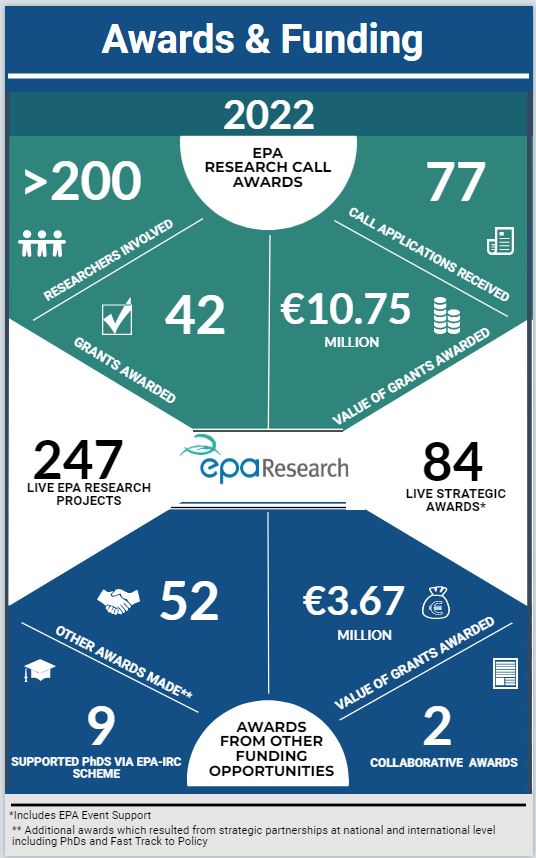
Awards and Funding 2022
Year: 2023
